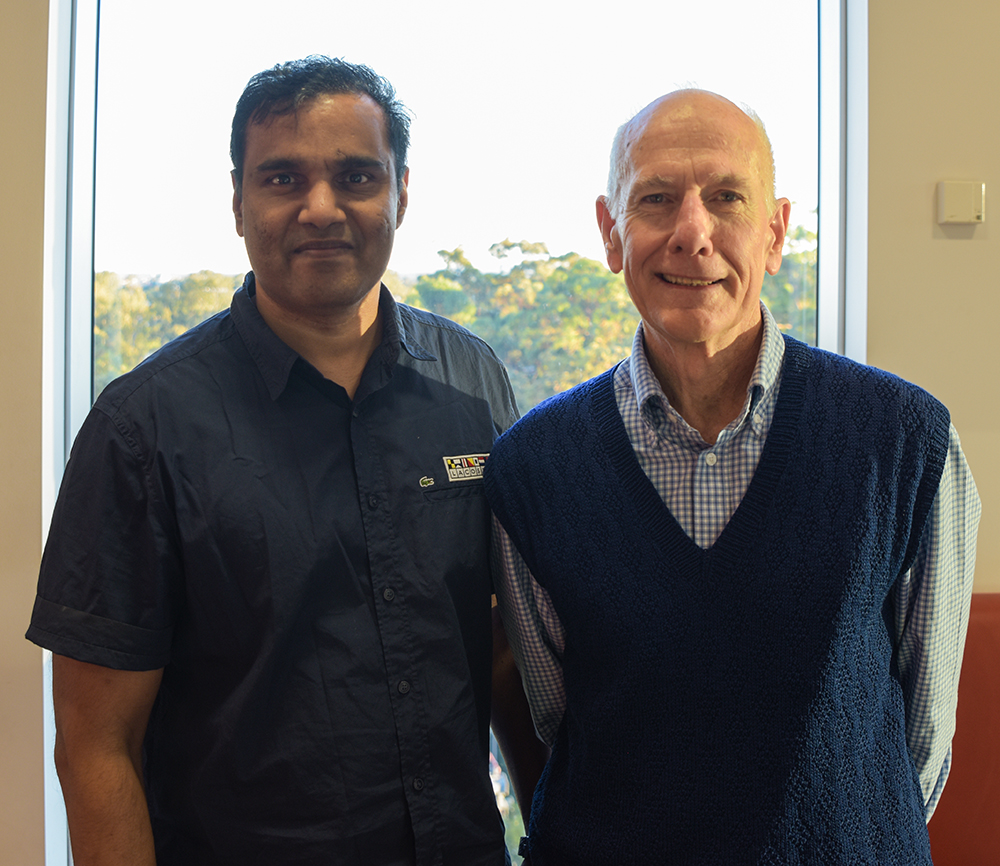The need to increase diversity in genetic studies to maximise the potential of discovering causes and possible treatments of psychiatric disorders has been recognised by the Psychiatric Genomics Consortium (PGC), a group including QBI researchers.
Dr Sathish Periyasamy and Professor Bryan Mowry from QBI and the Queensland Centre for Mental Health Research were part of the Psychiatric Genomics Consortium Group that made these recommendations.
The Psychiatric Genomics Consortium unites more than 800 researchers from 36 countries, who analyse genomic data for psychiatric disorders to understand their genetic basis.
More diversity means more insights into diseases
“This represents a timely development in the field of psychiatric genetics—including more diversity in our studies gives us a more comprehensive insight into diseases,” Dr Periyasamy said.

In genome-wide association studies (GWAS), researchers comb the human genome for common genetic variations that occur more frequently in people with a specific disease than in those without the disease.
“Looking at a variety of populations can highlight different parts of the genome with a more robust association with the disease—we recently highlighted this in the first Indian genome-wide association study for schizophrenia,” Dr Periyasamy said.
Over-representation of Europeans in genetic studies
Historically, GWAS have focused on populations with European genetic ancestry due to the tools, samples and funding available, but this has led to the over-representation of Europeans in genetic studies.
Of the participants recruited for published GWAS studies, 78 per cent have European ancestry, and of these, 72 per cent were recruited from just three countries: the United States, the United Kingdom, and Iceland.
Diversity gives both scientific and ethical benefits
The direct consequence of research data largely based on European populations is that in the USA, genetic risk prediction is three times more accurate among Americans of European descent than African Americans.
“There are both scientific and ethical benefits of including underrepresented groups in genomics research, and this now been recognised,” Professor Mowry said.
“The inclusion of diverse groups yields important insights into the genetics of human traits and diseases and tends to give more accurate results, and accelerate discoveries.”
Professor Mowry and Dr Periyasamy are currently working with other investigators as part of the Psychiatric Genomics Consortium Cross Population Special Interest Group to establish a South Asian consortium.
This research paper was published in the journal Cell —the lead author is Dr. Roseann E. Peterson from Virginia Commonwealth University, USA.



